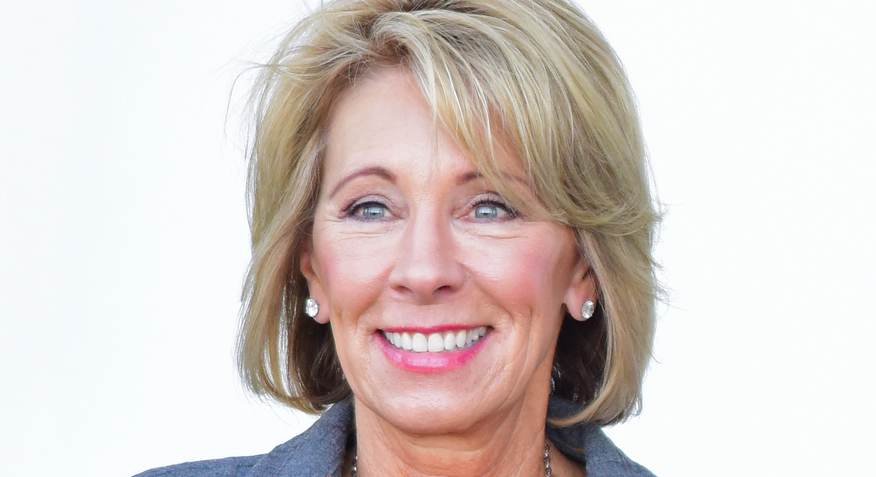Education Department announces new rules on handling campus sexual assault

U.S. Education Secretary Betsy DeVos.
Secretary of Education Betsy DeVos has released new guidance for how colleges and universities should handle sexual assault and harassment, the Washington Post and NPR report.
A year after rescinding Obama-era regulations on the subject, the Department of Education has replaced them with rules that expand the rights of accused students and narrow the types of cases that universities are required to investigate. The public will have 60 days to comment on the proposal, as required under the Administrative Procedure Act, before the rules are final.
“The proposed regulation is grounded in core American principles of due process and the rule of law,” the Post quoted the Education Department as saying. “It seeks to produce more reliable outcomes, thereby encouraging more students to turn to their schools for support in the wake of sexual harassment and reducing the risk of improperly punishing students.”
The rules are an attempt to implement Title IX of the Education Amendments Act of 1972, which bars gender discrimination in education when the institution is receiving federal funding.
The rules change the legal standard for proving allegations, from a “preponderance of the evidence” to “clear and convincing evidence.” Students also have the right to cross-examine one another, although they must do that through lawyers or other third parties. Both parties have the right to an attorney. Investigations must be “reasonably prompt”—a less strict standard than the Obama administration’s call for specific time limits.
Schools are encouraged to provide support to victims, but any such support must not burden or punish the accused unless and until there’s a finding that the accused is at fault. NPR said this could mean that a no-contact order applies to both parties equally.
The new proposed rules also narrow the definition of sexual harassment. The Obama-era guidelines called sexual harassment “unwelcome conduct of a sexual nature.” The Trump administration’s proposal calls it “unwelcome conduct on the basis of sex that is so severe, pervasive and objectively offensive that it denies a person access to the school’s educational program or activity.” The department cites U.S. Supreme Court precedent as a basis for the narrower definition.
And only allegations reported to designated administrators are required to be investigated. Furthermore, colleges and universities would not be obligated to investigate reports when the alleged victim doesn’t want them to. That rule does not apply to elementary and secondary schools, according to the Washington Post.
NPR noted that some colleges and universities may welcome the clarity provided by the rules, particularly because they came through a formal rulemaking process, unlike the Obama-era rules. The Washington Post noted that men’s rights groups and conservative legal scholars were critical of the prior rules. The conservative Foundation for Individual Rights in Education also praised the rules.
“By taking the rights of both complainants and accused students seriously, these proposed regulations make important strides toward ensuring that complaints of sexual misconduct will be neither ignored nor prejudged,” said Samantha Harris, vice president for procedural advocacy at FIRE, in a statement.
But the response from victim advocates and women’s groups was less positive. End Rape on Campus called it a move “to silence survivors” that would result in fewer reports and greater numbers of victims not finishing their educations.
The American Association of University Women said the new rules were “completely at odds” with Title IX. “Any action that limits recourse for students who experience sexual harassment or assault in schools is flat-out wrong,” said AAUW CEO Kim Churches in a statement.



